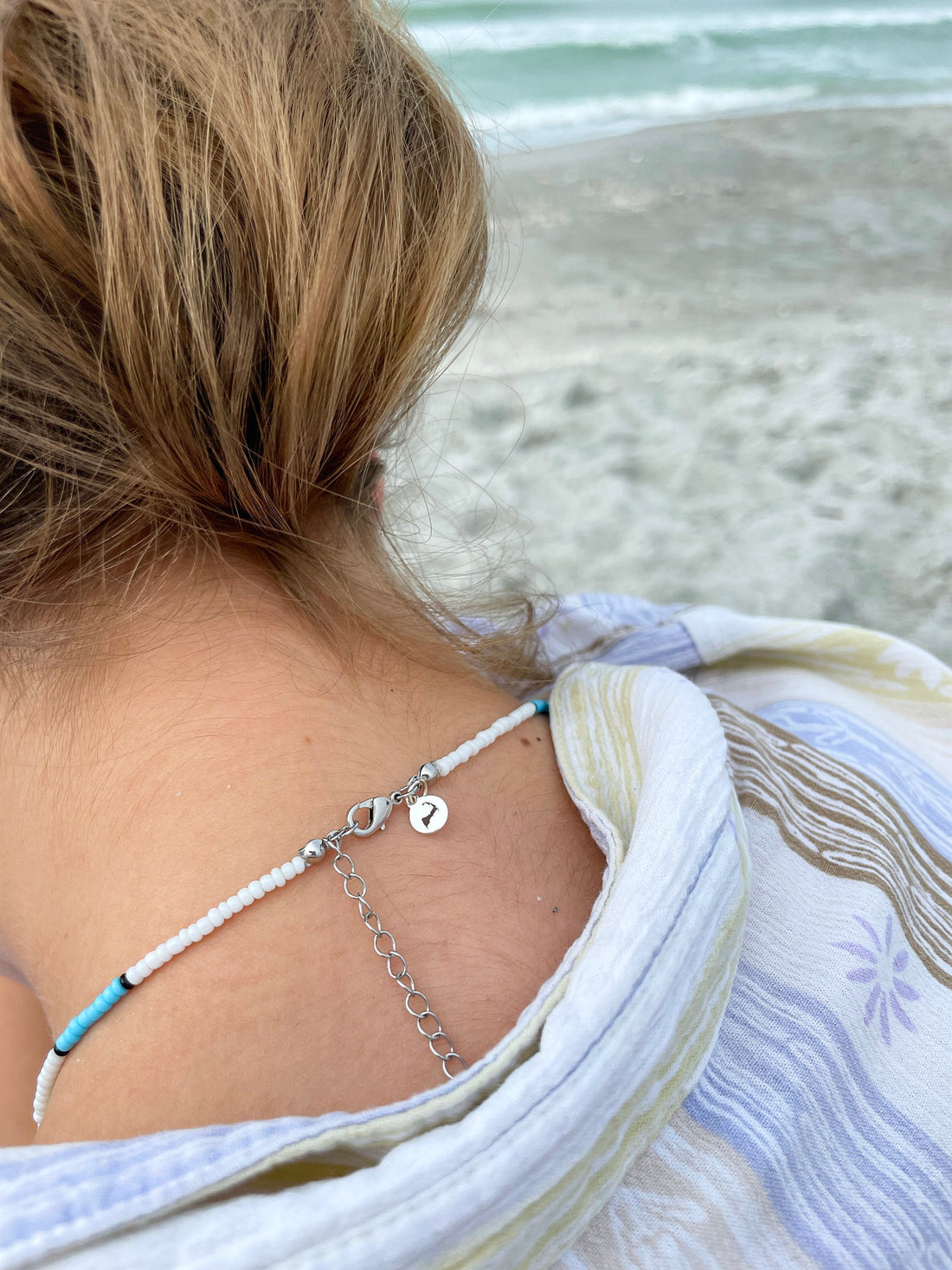
Waterproof Jewelry: Short Guide
Share
What material of jewelry is waterproof?

If you wear jewelry that is not water resistant, you may find that it becomes discolored or tarnished when you go swimming or even just doing the dishes.
There are many different options for waterproof jewelry, from simple studs to more intricate pieces. Whether you are looking for a simple bracelet or a more elaborate piece, you will be able to find a piece that is waterproof for your needs.
Related: Pearls: Fashionable or Outdated?
Stainless Steel Jewelry
It's a popular metal for jewelry. 316 is a superior metal that doesn't oxidize or rust very easily. It can last for a long time, even when exposed to saltwater. The mineral protects the metal from oxidation.
There is no reason for anyone to worry about the safety of the jewelry in the shower. If you're going to enter a pool, it's a good idea to remove any jewelry made of titanium, which can be damaged by exposure to chlorine.
Solid Gold Jewelry
Solid gold is a great option for any jewelry lover. It’s a natural element that is extremely durable, attractive, and also affordable. Think 14k gold or higher. Although this is too soft to use for anything but pendants, earrings, and smaller pieces, it is ideal for jewelry that is less worn, like pendants.
It's true that prolonged exposure to water can cause gold to lose some of its luster, but only for a short while. However, gold is not a permanent filter for water. Gold jewelry contains small amounts of copper and zinc, which can react fairly badly to chlorine.
Platinum Jewelry
One of the most durable metals is platinum. It's very hard to wear down, and is highly resistant to corrosion. Corrosion Resistant Copper is used as a coating on other metals, and it won't corrode even when exposed to water.
Plating a new item of jewelry in platinum is a popular option for those who want to protect the beauty of the precious metal. However constant exposure, such as in a swimming pool, they become damaged. You can wear platinum jewelry to the beach, but you must clean it afterwards to prevent any loss to the metal's natural beauty.
Palladium Jewelry
Wedding bands and rings are often made out of palladium, like platinum, which is a durable metal that's popularly used for rings and wedding bands.
Both platinum and palladium are considered noble metals because of their ability to resist corrosion. Palladium can be exposed to all types of water since it has alloys that hinder the process of oxidation, meaning it won't corrode. Palladium does not even corrode when exposed to chlorine in swimming pools.
Titanium Jewelry
Titanium jewelry is becoming more popular, but it's still not quite the same as the other types listed. Regardless, it's a popular option. Titanium is the perfect jewelry metal for those who love swimming, since exposure to chlorine doesn’t affect it in any way.
Titanium is a very strong metal that can withstand very high temperatures. However, prolonged exposure to chemicals can cause it to corrode. Anodized (or gold-plated) titanium jewelry can be immersed in seawater, while polished, non-anodized titanium jewelry can withstand direct.
Aluminum Jewelry
Aluminum jewelry is another type of waterproof jewelry metal that’s gaining fame and recognition. A piece of metal is strong and durable. It can be shaped into many different designs and forms. The best thing about it is that it can be exposed to water and doesn't corrode very easily.
This is a durable and versatile material for jewelry making. You can use it for making charms, jewelry, and decorative accessories. But unlike titanium, it will not wear down if merged with other metals. It’s ideal for use when swimming in a pool or in the sea and can be worn for a considerable amount of time.
Wondering what to wear with your jewelry when going to the pool or beach? Check out our Bikini collection! designed on Cape Cod, with the love of the sand, the ocean, the wind, and the waves.
